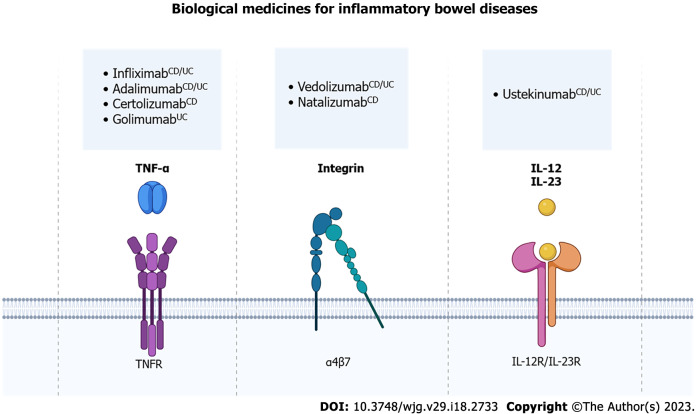Figure 2.
Biological medicines for inflammatory bowel diseases. Biological medicines used for the treatment of inflammatory bowel diseases (IBD) can be classified into anti- Tumor necrosis factor (TNF)-α, anti-integrin and anti-interleukin therapies. Anti-TNF-α binds to TNF-α and inhibits TNF receptor activation. Infliximab, adalimumab, certolizumab pegol and golimumab are examples of anti-TNF-α used in the treatment of IBD. Vedolizumab and natalizumab are anti-integrin agents, which bind to the α4β7 integrin and prevent the migration of inflammatory cells into the intestinal tissue. Ustekinumab is an anti-interleukin that blocks interleukin (IL)-12 and IL-23, which cannot bind to IL-12 receptor and IL-23 receptor on T and B lymphocytes, thus reducing the inflammatory response in the gut. CDindication only for Crohn’s Disease; UCindication only for Ulcerative Colitis; CD/UCindication both for Crohn’s Disease and Ulcerative Colitis. TNF-α: Tumor necrosis factor-alpha; IL: Interleukin. Created with BioRender.com.

